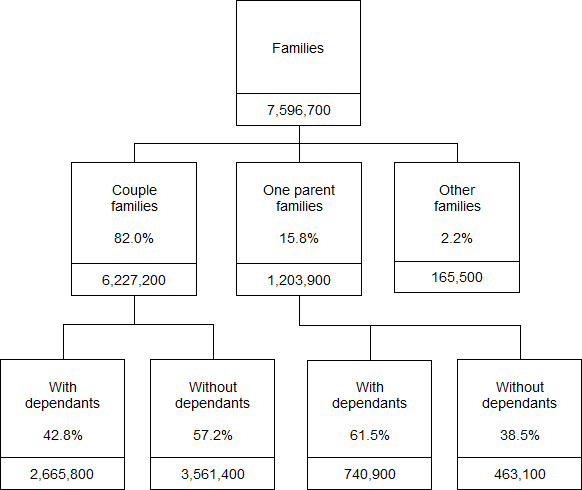What is a family?
A family is defined as two or more related people who live in the same household, such as couples with or without children (including same sex couples), couples with dependants, single parents, and siblings living together. At least one person in the family must be 15 years or over.
A household is one or more people usually resident in the same private dwelling. It may contain a single family, multiple families, or unrelated people. The main differences between estimates for households and estimates for families are that multi-family households are split into their component family units (couple families, one parent families or other families) and households without families (group households and people living alone) are not included in families estimates.
Families can be classed as having, or not having, dependants. There are two kinds of dependants:
- children under 15 years
- dependent students aged 15 to 24 years who are attending school or studying full-time at a tertiary education institution and living with their parents/guardians
See the Labour Force Status of Families methodology for more information.
